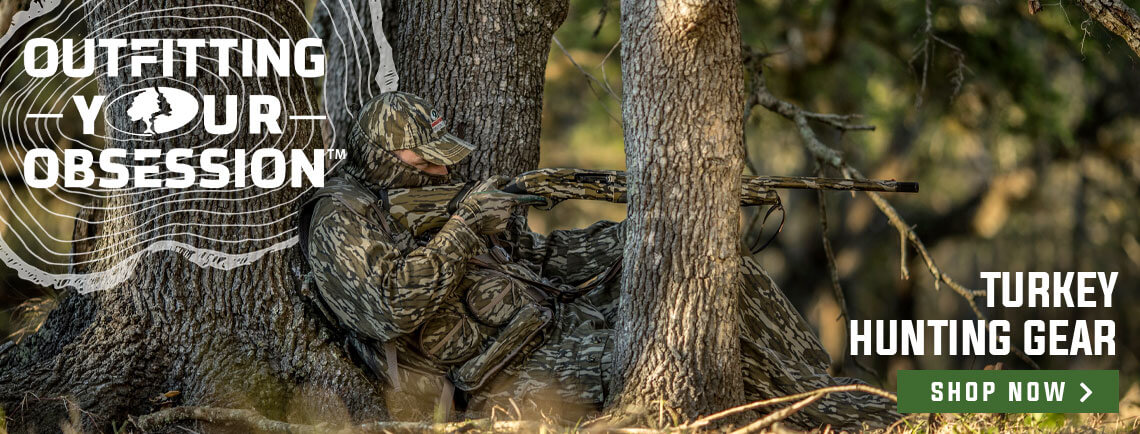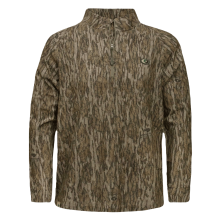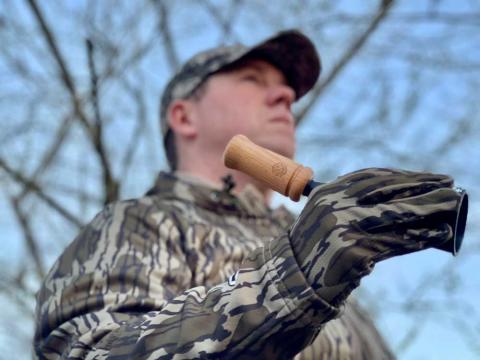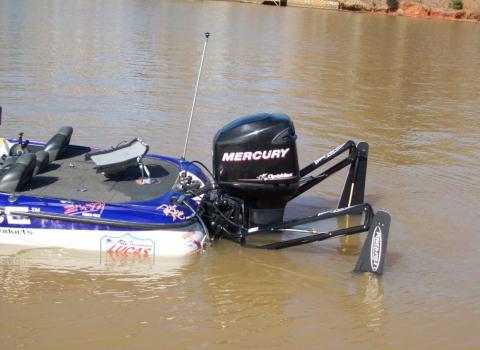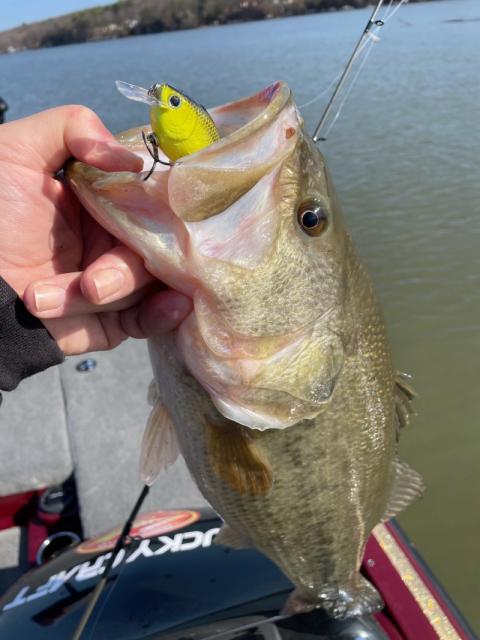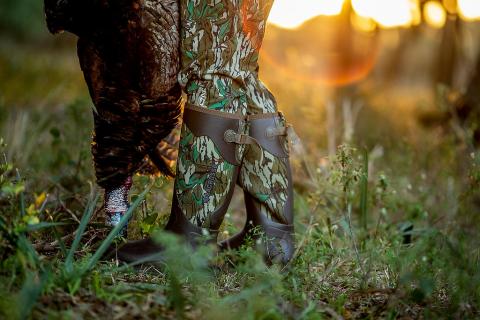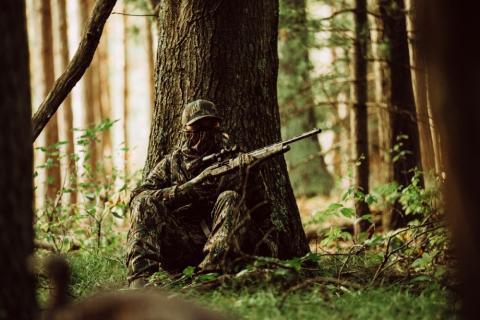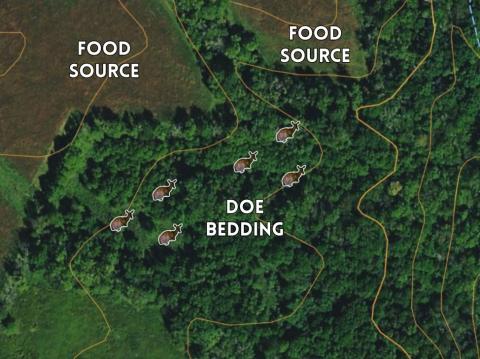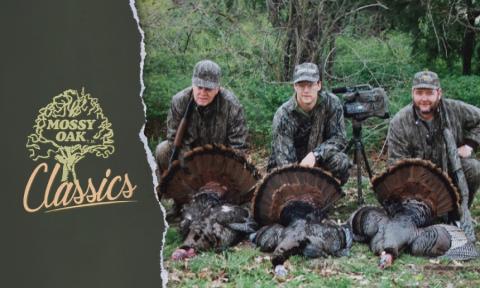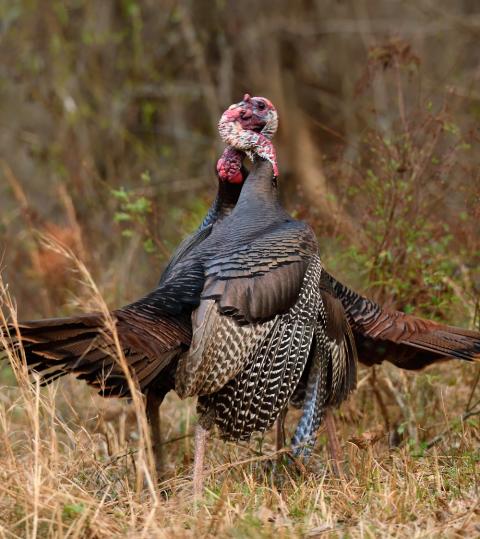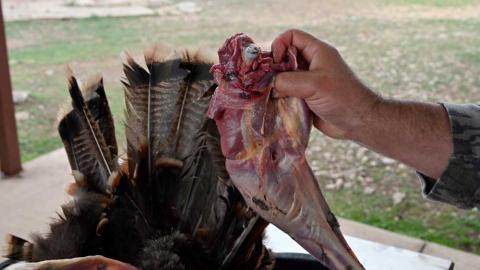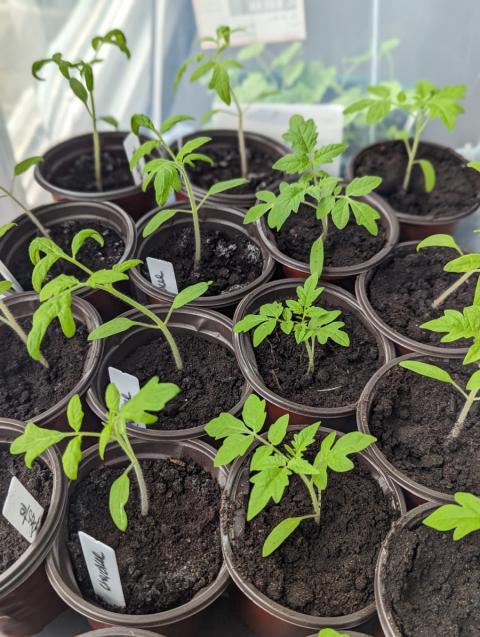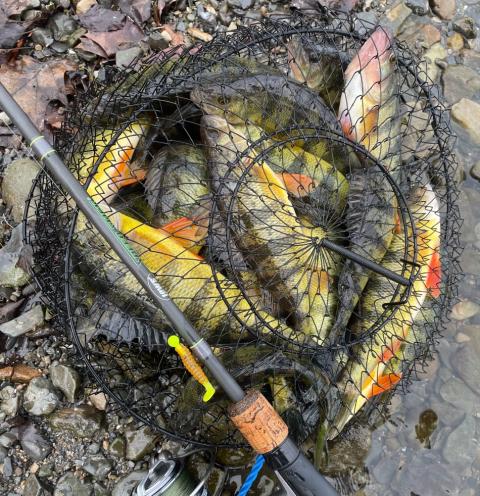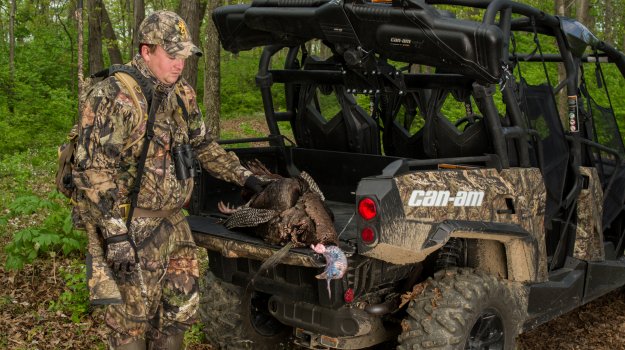
Chris Kirby is the president of Quaker Boy Calls, produces the Mossy Oak Turkey Thugs calls and has won the World Turkey Calling Championship. As a youngster, Chris trailed along behind his dad, Dick Kirby, who started Quaker Boy Calls, when they hunted. He never remembers a spring when he wasn’t in turkey woods. From the beginning of turkey season in Florida until the end of turkey season in New York, Chris will be wearing Mossy Oak camouflage, hunting turkeys in the spring woods every day – and for sure in the mornings.
So How Badly Did You Spook the Turkey?
If you want to see all the blood go out of a turkey hunter’s face, watch what happens when he's going to a gobbler, but the gobbler sees him and the turkey runs off before the hunter can get a shot. Or, a gobbler is coming to the hunter’s calling and spots the hunter moving. That movement spooks the turkey and the turkey runs. The only feeling that I know of that’s worse is if you shoot at a gobbler and miss him. Now the hunter has a real problem if that’s the only gobbler he has to hunt.
The first thing you need to do is replay what’s happened in your mind and try to determine just how badly you’ve spooked that turkey. Did you drive by the place where you were planning to hunt and a wild turkey was standing by the side of the road, saw the car and the turkey ran up the hill? Were you walking the edge of the field that the turkey was coming to after he flew down, but the gobbler had roosted right on the edge of the field and spotted you before you could get into the woods? Were you riding your 4-wheeler to where you were going to park your ATV and you spooked the gobbler? Did you shoot at the turkey and miss him and he ran? Or did the turkey fly off?? Of course, the worst-case scenario is having shot at the turkey and missed. If the turkey saw you or heard you and got spooked, then frightening that gobbler by being seen isn’t nearly as bad as having shot at the turkey.
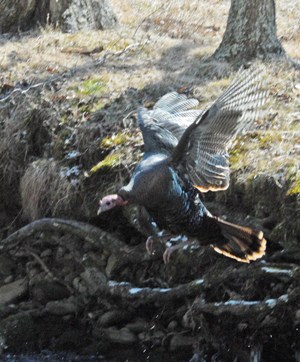 Will He Come Back?
Will He Come Back?
Wild turkeys are often spooked by people who are mushroom hunting, people taking walks with their dogs, farmers going to fields to start preparing their ground for the spring or farmers driving their 4-wheelers checking on cattle. So, turkeys get spooked by people regularly, but these instances don’t really threaten a turkey. I believe that you often can take the turkey you’ve spooked that same day or later in the season.
The first thing to remember after you spook a wild turkey is wait 20 or 30 minutes before you try to hunt that turkey again. Also, plan to call softly. After noticing the direction in which the turkey ran off or flew, very quietly walk in that direction, take a stand and start calling softly and infrequently. The gobbler wanted to be where you were when you spooked him. So, after he thinks you're gone, and he hears a hen softly calling, there’s a very good chance he may come back in that direction. Remember — the gobbler has a limited number of days to breed. How fast a gobbler returns will vary, but he’ll take chances then that he won’t take if this isn’t breeding season. Don’t be surprised if you hear a gobble soon after calling.
Get Him Into Range
If the turkey starts gobbling but won’t come into gun range, make sure the turkey is far enough away from you that he can’t see you. Move closer to the turkey but off to the side of where you’ve heard the turkey gobbling. Take a stand, let the woods become silent and start soft calling again. If you’ve shot at the gobbler and missed him, plan to leave the woods and don’t hunt that turkey again for two to three days. Don’t call from the same spot where you’ve missed the turkey. Change calls, and don’t use the same series of calls that you have when the turkey has come in and you’ve missed him. Also remember that no turkey-calling tactic always works. Too, the more times a wild turkey encounters a hunter, the more difficult he becomes to hunt.
Turkeys are fascinating. To be a true student of this bird, you need to be in the turkey woods as much as possible. Locating a roost, hearing a gobble in a strong wind and setting up on a distant gobbler are all learned by getting out there and doing it. Of course, some things you learn the hard way. We all miss, but, hopefully, these tips will help you recover and still bring that longbeard home.

 Will He Come Back?
Will He Come Back?